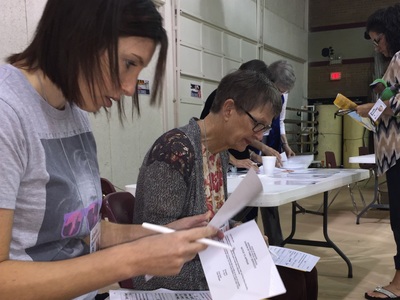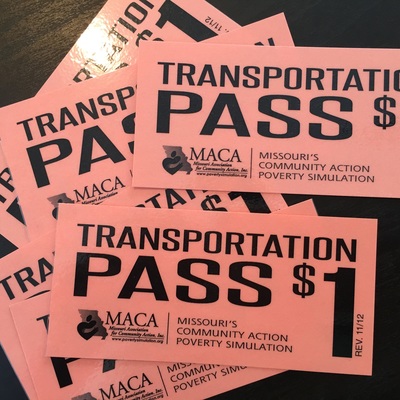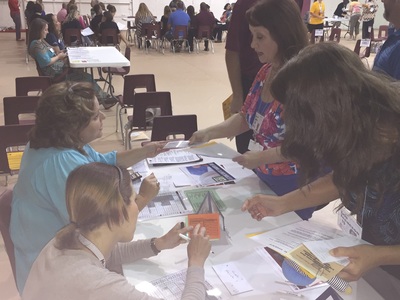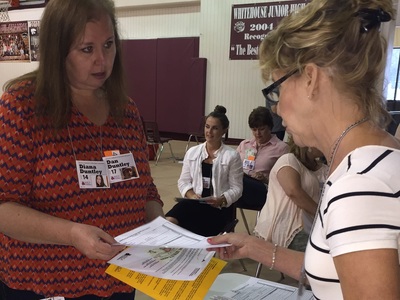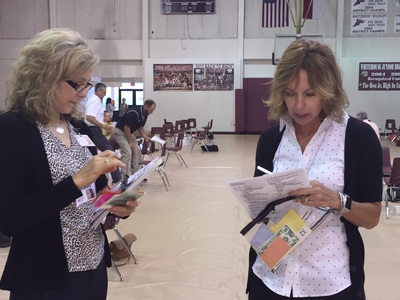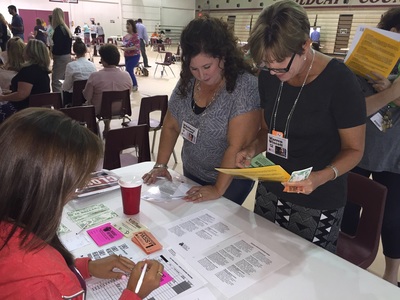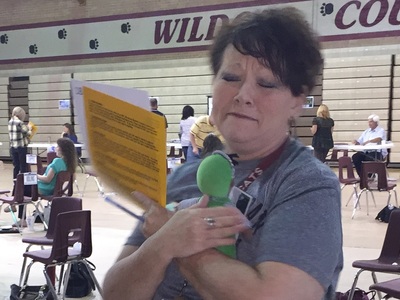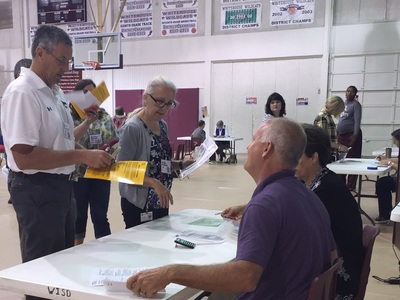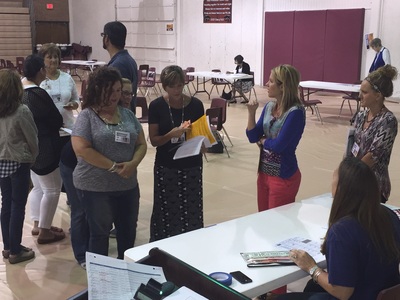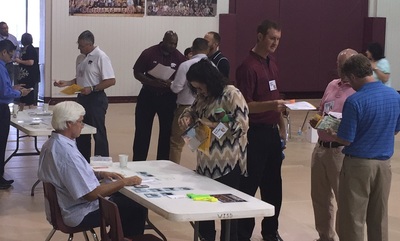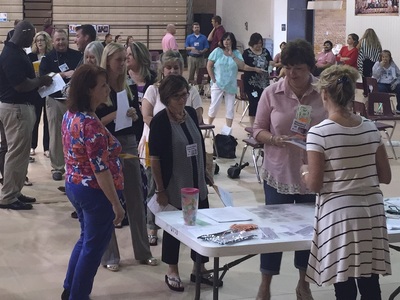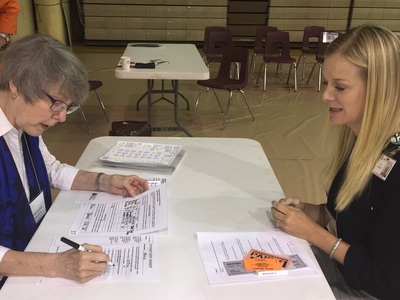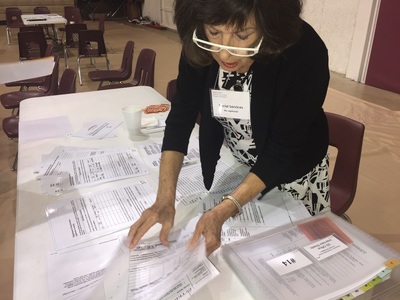A Lesson Learned
 Pedro as a child.
Pedro as a child.
The effects of poverty in our student population, courtesy of life’s curveballs and the East Texas Human Needs Network
By Pedro Tamez, English Teacher at Holloway Sixth Grade School, Whitehouse ISD
As a child, I had no idea that my family lived in poverty. Growing up watching my parents pinch pennies, plan months ahead for things like school supplies, shopping for clothes at the church clothes closet, and family vacations consisting of picnics at the neighborhood park seemed normal and shaped my worldview. We never had anything in abundance, and little did I know that many times we went without some of the things we needed. However, one thing that never lacked in our home was my parents’ hope for a better future. Over the course of several years my parents were able to use the skills they had because of their education, professional networks, and strong faith in God to improve our financial situation and provide for our needs without the worries that poverty brought as an unwelcomed guest in our home for a season in our life. Later in college, I learned there was a name for our family’s temporary condition - situational poverty.
Fast forward to the summer of 2015 when I attended the Poverty Simulation Activity hosted by the East Texas Human Needs Network. I thought the event would be a typical seminar where we would sit and listen to an expert in the field tell us how poverty affects our students and how to identify signs of students struggling because of the effects of poverty. I was mistaken; it was anything but that.
By Pedro Tamez, English Teacher at Holloway Sixth Grade School, Whitehouse ISD
As a child, I had no idea that my family lived in poverty. Growing up watching my parents pinch pennies, plan months ahead for things like school supplies, shopping for clothes at the church clothes closet, and family vacations consisting of picnics at the neighborhood park seemed normal and shaped my worldview. We never had anything in abundance, and little did I know that many times we went without some of the things we needed. However, one thing that never lacked in our home was my parents’ hope for a better future. Over the course of several years my parents were able to use the skills they had because of their education, professional networks, and strong faith in God to improve our financial situation and provide for our needs without the worries that poverty brought as an unwelcomed guest in our home for a season in our life. Later in college, I learned there was a name for our family’s temporary condition - situational poverty.
Fast forward to the summer of 2015 when I attended the Poverty Simulation Activity hosted by the East Texas Human Needs Network. I thought the event would be a typical seminar where we would sit and listen to an expert in the field tell us how poverty affects our students and how to identify signs of students struggling because of the effects of poverty. I was mistaken; it was anything but that.
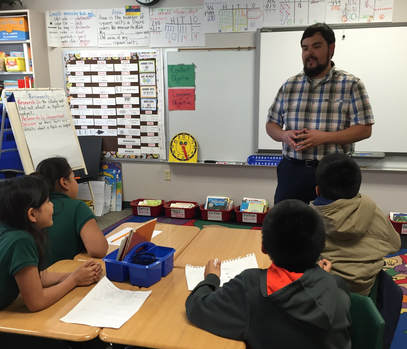 Mr. Tamez with his 6th grade students.
Mr. Tamez with his 6th grade students.
We were placed into family units, and each individual played the part of a different member in the family. Every family was dealt a myriad of circumstances and left to figure out how to work with what “life” threw at them. In the activity, my family was in what is known as generational poverty, when a family is in poverty for two or more generations, and I learned that it is very different from the situational poverty that I experienced as a child.
The preoccupations and daily struggles of families in this type of circumstance can be extremely overwhelming to an adult and particularly to a child. Poverty, especially generational poverty, can literally push people to a state of complete hopelessness. It made me realize that although I am familiar from personal experience with some of the issues that a family may have because of a rough circumstance that changes their financial condition temporarily, there are families and students whose experience is very different because of the effect that generational poverty can have on the mindset of individuals. Circumstances that some of the families in our community and students in our district face day in and day out can become very overpowering, because survival and the struggle to meet basic daily needs are at the forefront of these individual’s minds.
As a classroom teacher, I realize that reaching the young mind of any struggling student for the purpose of sharing new knowledge can be a monumental task, but it can be exponentially more difficult if you are not properly equipped to identify the students who are dealing with the unique struggles of poverty. Thankfully, the simulation provided an opportunity to experience
some of these daily challenges, and how they can affect my students in the classroom. It also gave me the opportunity to reflect on ways I can identify various warning signs of the struggles that impede a student’s ability to focus and retain information in my class. The activity that ETHNN brought to our district was eye-opening because it helped me see circumstances from the point of view of some of the neediest students on my campus. There are little things that I can do to help a student who is struggling, not because of lack of mental capacity, but because of preoccupation based on the physical, mental, and emotional needs that their home life may leave unmet. By taking the time to understand those needs, I often find opportunities to reach these students and teach them the valuable content of my lessons. The skills that we share with our students in and out of the classroom every day are the tools that may help overcome the unfortunate condition of poverty - that’s my hope anyway. As teachers, we have to have hope that what we are doing will, at some point, become valuable in the lives of our students.
The preoccupations and daily struggles of families in this type of circumstance can be extremely overwhelming to an adult and particularly to a child. Poverty, especially generational poverty, can literally push people to a state of complete hopelessness. It made me realize that although I am familiar from personal experience with some of the issues that a family may have because of a rough circumstance that changes their financial condition temporarily, there are families and students whose experience is very different because of the effect that generational poverty can have on the mindset of individuals. Circumstances that some of the families in our community and students in our district face day in and day out can become very overpowering, because survival and the struggle to meet basic daily needs are at the forefront of these individual’s minds.
As a classroom teacher, I realize that reaching the young mind of any struggling student for the purpose of sharing new knowledge can be a monumental task, but it can be exponentially more difficult if you are not properly equipped to identify the students who are dealing with the unique struggles of poverty. Thankfully, the simulation provided an opportunity to experience
some of these daily challenges, and how they can affect my students in the classroom. It also gave me the opportunity to reflect on ways I can identify various warning signs of the struggles that impede a student’s ability to focus and retain information in my class. The activity that ETHNN brought to our district was eye-opening because it helped me see circumstances from the point of view of some of the neediest students on my campus. There are little things that I can do to help a student who is struggling, not because of lack of mental capacity, but because of preoccupation based on the physical, mental, and emotional needs that their home life may leave unmet. By taking the time to understand those needs, I often find opportunities to reach these students and teach them the valuable content of my lessons. The skills that we share with our students in and out of the classroom every day are the tools that may help overcome the unfortunate condition of poverty - that’s my hope anyway. As teachers, we have to have hope that what we are doing will, at some point, become valuable in the lives of our students.
Whitehouse ISD Poverty Simulation
Helping teachers prepare to work with children and families who live in poverty - 20 volunteers - 80 participants!

